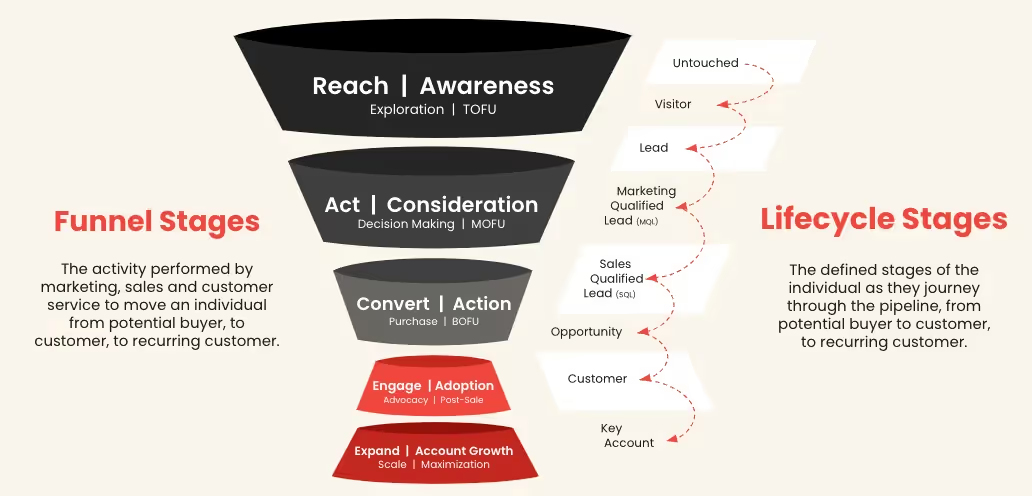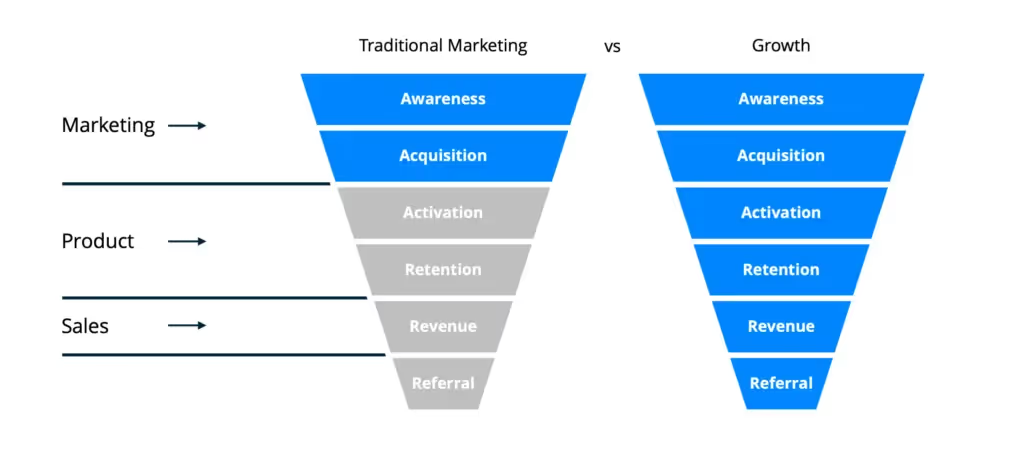5 Reasons You Should Hire a Growth Marketing Agency
Google Trends data shows that searches for "growth marketing" have grown substantially over the past five years. This isn't too surprising — growth marketing is highly scalable, provides a strong Return On Investment (ROI), and helps brands grow sustainably long-term.
Mastering growth marketing isn't always easy, so many companies choose to work with a growth marketing agency. This article will shed light on five reasons your brand should hire such an agency.
#1. They Have Experience With Other Companies at Your Growth Stage
As brands grow, they often face a common set of growing pains related to marketing. For example, startups often lack the marketing bandwidth to run full-fledged campaigns on all digital platforms simultaneously. Or, new ecommerce businesses often struggle to get the engagement snowball rolling (getting your fifth follower is far easier than getting your 150th).
Growth marketing agencies work with brands over long periods, so they know how to minimize growing pains and steer a brand through the chaos.
Growth hackers have also implemented a wide range of strategies across many digital platforms, so they know what works and what doesn't. This knowledge is invaluable, as it will help you make smarter marketing choices straight away so you can yield returns quickly.
Note: Read "How To Build a PLG Funnel Your Sales Team Can Use."
#2. They Can Plan Industry-Specific Long-Term Strategies
Compared to regular marketers, growth marketers view the sales funnel more holistically. Plus, they focus on metrics like Customer Lifetime Value (CLV) and retention rate over short-term revenue.

As a result, growth marketing strategies are like snowballs — they grow as they gain momentum. Growth marketing is really a long-term approach.
While a traditional marketing agency can help you design a strategy weeks to months in advance, your growth team will think months to years ahead. Naturally, they can help you design marketing that is sustainable and provides long-term returns.
Growth hackers are also excellent researchers. They can dive deep into your industry and learn what motivates your customers and how to market to them best. When you hire a growth marketing team, you get a holistic, industry-specific plan.
#3. They Can Save You Money
The initial investment of hiring a growth hacking marketing agency often makes brand owners and managers nervous. However, if the brand invests wisely, it can spend less on an agency than it would if it tried to run a fully-fledged marketing strategy in-house.
Growth marketing agencies can also get brands a better ROI. Agencies have a lot of in-house expertise, so they can optimize your marketing budget with smart investments and reduce marketing wastage.
Research on 1,000 marketers by Rakuten Marketing shows that around 26% of marketing budgets were wasted in 2018, while a 2022 report on 41 companies spending $500,000 to $31 million on marketing estimates marketing wastage is 41%. So wastage is a major concern for many brands.
#4. They Reduce Your Workload
Growth marketing agencies often employ marketers who specialize in Search Engine Optimization (SEO), paid media, content marketing, social media marketing, email marketing, referral marketing, video marketing, and other marketing niches. So, when you work with an agency, you get access to experts without having to expand your in-house marketing team.
Working with a growth marketing company can also reduce your workload substantially. Marketers can either complete marketing tasks for you or help you automate them.
You'll know whether you've hired a good agency if they're easy to work with. We recommend looking for an agency that communicates well, provides regular updates, consults you in the decision-making process, and works transparently.
#5. They Can Help You Become Results-Driven
Growth marketing is generally more adaptive than traditional digital marketing (though that is changing as marketers get better access to marketing data). When they implement a strategy, growth hackers conduct frequent tests and experiments to assess how your audience is responding. Then, they optimize your marketing materials to obtain the best result.
Naturally, hiring an agency can help you become more results and performance-driven. Performance marketing offers benefits like:
- Higher ROI
- More efficient marketing
- Optimized campaign planning
- Enhanced forecasting
- Faster speed to lead times
- Greater customer retention
Working with a growth hacking consulting agency also means you don't need to design your marketing analytics infrastructure alone. Many new brands and startups with limited staff and busy schedules often struggle to dedicate time to building this infrastructure, so it's nice to get it off your to-do list.
Note: Read "3 RevOps HubSpot Automations Your Business Needs."
Performance Marketing and Growth Marketing Agencies
Growth marketing can improve your ROI, grow your customer base, and help you achieve rapid and sustainable growth.
You can see the value of a growth agency by looking at a case study like that of Allocations. Matter Made helped Allocations develop marketing infrastructure and run campaigns on Google, Bing, and LinkedIn. As a result, Allocations increased its pipeline three times in the first 90 days.
Want results from growth marketing? Let's talk.













